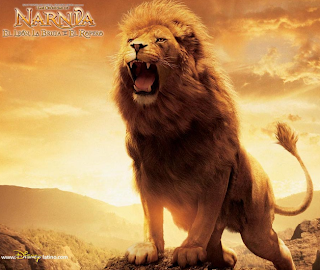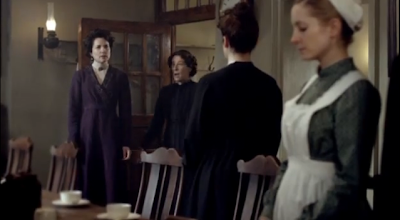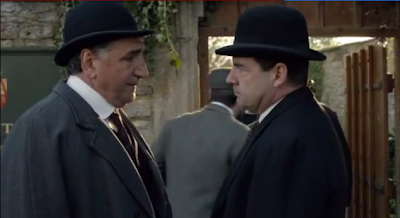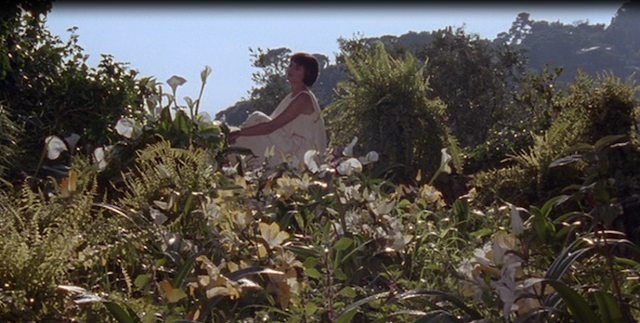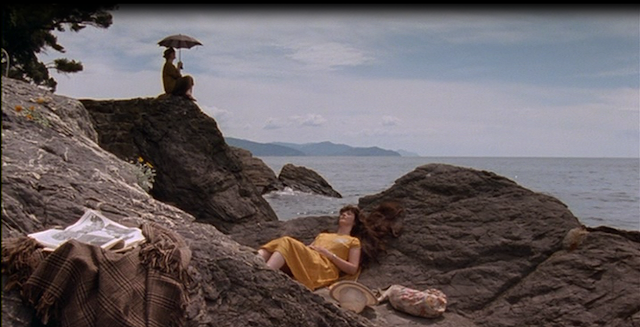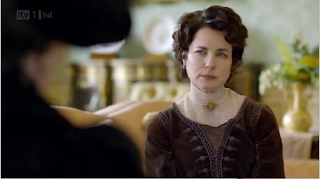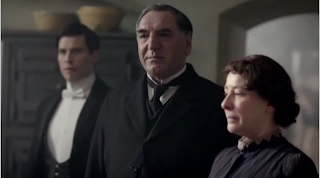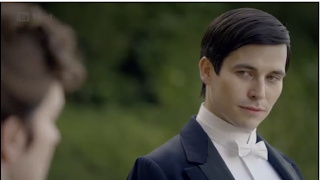I am facing a problem of epic proportions. That's a tad exaggerated I know, but considering I'm fresh from watching The Chronicles of Narnia: Voyage of the Dawn Treader, expect my language to be all high-flown and airy and transcendent.
I kid, I kid.
Well, I only half- kid. In all seriousness though, how do I describe my sensations, explore my emotions and extricate my exclamations without... letting spoilers loose?
I shall have to clench my teeth, pray, and dive right in.
Technically, it's the other way around for Edmund and Lucy Pevensie and Eustace Clarence Scrubb, who almost deserves to be called that. Edmund and Lucy are stuck with their rotter of a cousin Eustace in boring old England during a war while Peter and Susan are jazzing in adventurous America. Oh, did I mention Eustace was a rotter? He is a rotter, and such a lovely rotter that he nearly split my sides. Eustace is one of my favourite characters in the book, and I am so thrilled and relieved that they cast Will Poulter to play him, because Will does an even more fantastic job than I’d hoped he’d do, and I’d hoped a lot ( have you seen The Son of Rambow trailer??). So in case any fan of the book is fluttering about in apprehension, rest easy, the wonderfully comic character of Eustace is in just as wonderful hands.
So where were we? Ah, yes. A horrified Eustace finds himself on a strange and beautiful ship in a strange and beautiful land his fairy-tale believing cousins refer to as Narnia, and wants nothing more than to get out of here. How dare they abduct him? HIM? Wait till he gets to tell his mother!
As an ardent admirer of the Narnia series, I was worried about how the dread producers would transfer Voyage of the Dawn Treader to the big screen. When reviewing the book earlier, I'd noted its similarities to Pilgrim’s Progress, and how in each of the episodic adventures sprinkled throughout the book, each of the characters are tested, learn and grow. Dawn Treader has always struck me as the most pastoral of the Narnia series, and while the gentle pace was perfectly fine in the book, it would not suit the format of a Hollywood blockbuster where there MUST be danger or else all is lost. So yes, dear ones, they did change the plot, but weep not, they preserve many of the central themes and spiritual imagery present in the book. In fact, compared with the dubious conundrum that was Prince Caspian, this film had much more of the actual book in it in spite of the myriad changes.
What I especially liked and related to was how each character had personal temptations that had lain simmering in their minds; and when these temptations were unleashed in their spectacular glory, how each of the characters had to struggle in near blood and tears to free themselves from them. The popular jingle nowadays is to give in to your temptations because it’s much easier that way or some other such inane justification, but I don’t bother bothering with such ideology. As a follower of Christ I’d rather walk the hard, narrow, and terribly thorny way than squander my fading days in Vanity Fair, sickening myself on cotton-candied air and painting myself with tinsel sheen. And yes, those thorns pricked me hard as I sat in the movie theatre and I uncomfortably recalled all the temptations I was undergoing. Was I even trying to resist them? You know a movie’s good when it acts as a mirror resolutely standing in front of you and showing you those internal flaws.
Oh hello, what am I doing? This is supposed to be a movie review. Should I not be making seasoned comments about the acting, directing, writing, appreciating the costumes, evaluating the special effects, critiquing the soundtrack? I mean, that’s what I normally do.
But those last ten minutes of The Voyage of the Dawn Treader banished criticism from my brain. Those last ten minutes sent tears to my eyes and down my cheeks. I wanted to brand myself to the chair and rewind those last ten minutes so I could watch them again. And again. And again.
I told my friend that I didn’t care how much they messed up if they got Aslan right. And they did and I cried; tears of happiness and relief and longing. And I promised I wouldn’t spoil the end and I won’t (although it hurts). All I can say is that the ending cements an already deep-rooted truth: human beings will always be searching for something and Someone beyond them. We were created to love and to be loved, to share a relationship boundless and thrilling, a relationship of amaranthine enchantment and ever-soaring joy. We reach for that place of infinite beauty, of everlasting peace, every fibre of our being yearns for it.
To me, Heaven is encapsulated in two things. The first is that there will be absolutely no sorrow, no pain. What bliss, how sweetly musical those words ring in my ear! And not only the girl who has led such a charmed life such as myself yet has experienced sorrow and piercing griefs, but for the silent and the enslaved, for the quietly faithful and the toiling servants, how those words hold soul-strengthening hope!
In one of his books novelist Ted Dekker wrote of heaven echoing with the sound of children’s laughter. I love that, for that represents the lack of sorrow and pain: a child's carefree, jubilant laugh. I also believe that the music of heaven will sound so beautiful that the music in this world will seem like nothing but discordant noise, and that as we hear those violet paeans, we will realise that all the music ever produced merely strived to sound similar to this. And the ending of the Dawn Treader reminded me how much I long for Heaven, how much I wait for the beauty and sweetness of that world which turns the colours of this world to grey ash. Yet as I pen these words I am reminded of how Heaven is much nearer than I think; every minute spent in the presence of God is akin to spending a minute in Heaven. Heaven is only Heaven when God dwells there. He makes Heaven; he is Heaven.
And I pray that I remain rooted and established in Him until the day comes when I finally set sail for the most thrilling adventure of my life: the journey Home.















